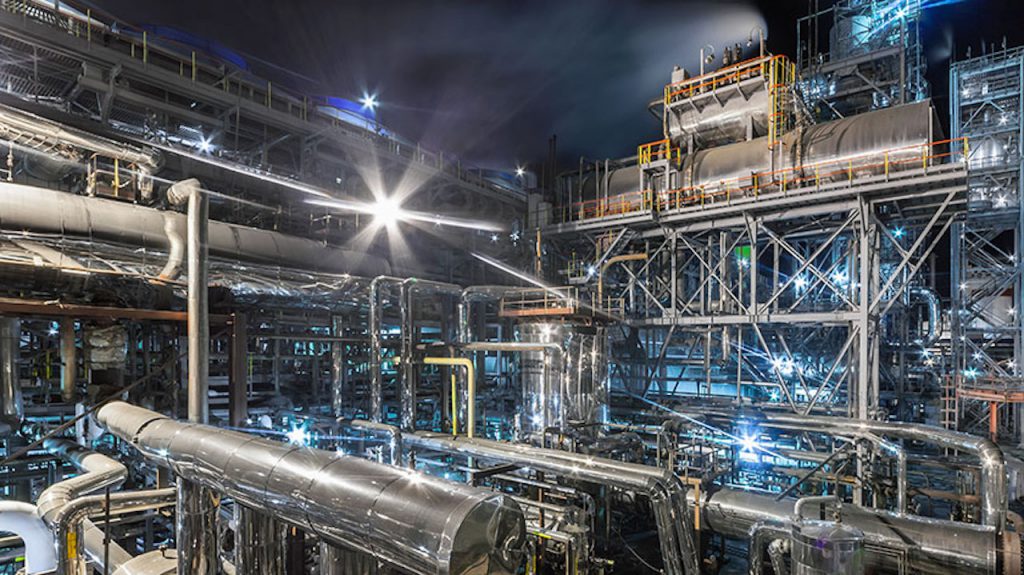Amanda Stutt | June 9, 2022

Carbon capture and storage facility. Photo by the International Energy Agency.
Calgary-headquartered Delta CleanTech is planning to launch a multi-million dollar carbon credit blockchain initiative with Canada’s First Nations communities.

Delta CleanTech is an ESG-driven, global technology company specializing in CO2 capture, decarbonization of energy, solvent and glycol reclamation, blue hydrogen production, and carbon credit aggregation and management.
The initiative, 13 years in the making, will allow Delta CleanTech to print and tokenize on the blockchain a carbon credit that can be traded on an exchange. Carbon percentage is to be quantified in a credit – and certified and tokenized as First Nations ESG on the blockchain so it can’t be counterfeited or lost. Then it can be traded as a carbon or ESG credit, the company said.
While still at the concept stage, the goal of the initiative is to reduce the Co2 footprint of industrial production by leveraging the acres owned by First Nations – about 7% of Canada’s total landmass.
The initiative is to be able to create a carbon credit that has been generated on First Nations land, and has a First Nations stamp of authorization. The company is working on its carbon credit initiative directly with Reginald Bellerose, former Chief of Saskatchewan’s Muskowekwan First Nation.
The vision is that First Nations take the lead in the carbon program, which will be launched nationally, with the Muskowekwan contributing the first acres of land, Bellerose told MINING.COM.
“The goal is to get more and more partners. We have advisors, First Nation leadership and a council of elders, so we can bring forward our world view,” Bellerose said.
“We continue to recognize all the challenges the First Nations are dealing with… we need to be leaders and participate. We have a council of advisors [who] will be influencers at a political level.”
The carbon economy is coming
“We’re very conscious of compliance carbon credits,” Delta CleanTech Director Lionel Kambeitz told MINING.com, adding the plan is to be able to capture carbon credits from development on [First Nations] lands – whether its mining development or energy or agricultural development.
“One of the most important underlying technologies in climate mitigation is going to be carbon currency, reflected in a carbon credit,” said Kambeitz.
“Its tradeable, and we’re tokenizing it. Many of the companies that are participating in the new carbon credit economy are, I hope going to be tokenizing as well, using the blockchain to verify the procedure and tokenizing it so it can be traded more readily.”
Kambeitz said when the tokens are traded, they will be traded with the reverence of social license.
“At every turn, at every corner that it is producing a carbon footprint, it gives the industry a chance to mitigate that footprint and have it recognized as a carbon credit, Kambeitz said. “ If we reduce and mitigate the use of carbon dioxide in our normal industrial process – that is worthy of being recognized.”
“The carbon economy is coming upon us, and it’s beyond government – when you go to Wall Street, Queens Street or Bay Street, wherever you’re raising your capital, it’s about ESG,” Kambeitz said.
“Its not about a government forcing a mine or an oil producer to look at their carbon footprint or be taxed. That may come or go, depending on the government.”
With the biggest companies in the world making commitments to be net zero by 2050, there are legal commitments made to the capital industry to be ESG compliant, Kambeitz said, adding that Delta CleanTech has brought the cost of capturing carbon dioxide down.
The cost of capital can be 20 to 25% higher for those miners with the lowest ESG scores, according to McKinsey’s report, Creating the Zero-Carbon Mine.
“The biggest single change beyond government policy of whatever party is in, is to have the investment community adapt and realize that ESG is one of the single biggest liabilities and or opportunities in a company’s balance sheet,” he said.
“This is going to live beyond the next government.”
No comments:
Post a Comment